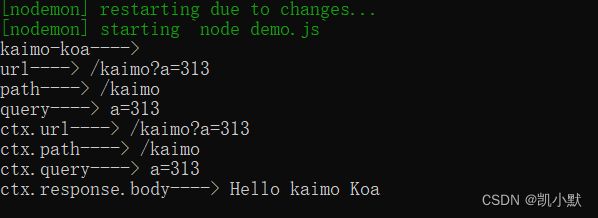- anythingLLM 使用教程
惟贤箬溪
穷玩AiAIGC人工智能
一、anythingLLM简介anythingLLM是一款灵活且功能强大的语言模型,它基于先进的深度学习架构构建,旨在为用户提供多样化的自然语言处理服务。其设计理念注重通用性和可扩展性,能够适应多种领域和任务,无论是文本生成、智能问答,还是翻译、摘要提取等,都能展现出出色的性能。与同类模型相比,anythingLLM具有训练数据丰富、模型优化程度高的优势,能够生成更符合逻辑、更具实用性的文本内容。
- 深度解析大模型推理框架:原理、应用与实践
百度_开发者中心
人工智能大模型自然语言处理
在当今数据驱动的时代,大模型推理框架已经成为人工智能领域的重要支柱。本文将通过简明扼要、清晰易懂的方式,带领读者深入了解大模型推理框架的原理、应用领域和实践经验,帮助读者更好地掌握这一技术,并在实际工作中发挥其价值。一、大模型推理框架简介大模型推理框架是指一种基于深度学习技术的推理框架,主要用于解决大规模数据集下的复杂问题。该框架通过对海量数据进行高效的训练和推理,能够快速地对各种复杂场景进行分析
- 大模型推理框架:从理论到实践的全面解析
百度_开发者中心
人工智能大模型自然语言处理
在数据驱动的时代,深度学习技术已经渗透到各个行业,从图像识别到自然语言处理,从推荐系统到智能客服,其应用无处不在。然而,深度学习模型的训练和推理过程往往涉及大量数据和复杂计算,传统的计算框架难以满足需求。因此,大模型推理框架应运而生,成为解决这一问题的关键。一、大模型推理框架基本概念大模型推理框架是一种基于深度学习技术的推理框架,它通过对海量数据进行高效的训练和推理,能够快速地对各种复杂场景进行分
- 基于ThinkPHP6用户登录逻辑,结合FastAPI框架实现用户登录系统的全流程解析
Wiktok
pythonfastapi
基于ThinkPHP6用户登录逻辑,结合FastAPI框架实现用户登录系统的全流程解析,涵盖路由配置、数据验证、JWT令牌生成与鉴权、中间件依赖等核心环节:1.路由配置与请求处理路由定义:使用APIRouter组织用户认证相关接口(注册、登录),并通过app.include_router()集成到主应用。例如:#routers/auth.pyfromfastapiimportAPIRouterro
- HDFS相关的面试题
努力的搬砖人.
java面试hdfs
以下是150道HDFS相关的面试题,涵盖了HDFS的基本概念、架构、操作、数据存储、高可用性、权限管理、性能优化、容错机制、与MapReduce的结合、安全性、数据压缩、监控与管理、与YARN的关系、数据一致性、数据备份与恢复等方面,希望对你有所帮助。HDFS基本概念1.HDFS是什么?它的设计目标是什么?•HDFS是Hadoop分布式文件系统,设计目标是实现对大规模数据的高吞吐量访问,适用于一次
- Flink相关面试题
努力的搬砖人.
面试java后端flink
以下是150道ApacheFlink面试题及其详细回答,涵盖了Flink的基础知识、核心架构、API使用、性能调优等多个方面,每道题目都尽量详细且简单易懂:Flink基础概念类1.什么是ApacheFlink?ApacheFlink是一个开源的流处理和批处理框架,能够实现快速、可靠、可扩展的大数据处理。它既可以处理无界的数据流,也可以处理有界的数据批,提供了低延迟和高吞吐量的实时数据处理能力。Fl
- FastAPI Web框架 [1.9]
carefree798
FastAPIpython
表单数据fromfastapiimportFastAPI,Form#导入Form#表单数据#接收的不是JSON,而是表单字段时,要使用Formapp=FastAPI()@app.post("/login/")asyncdeflogin(username:str=Form(...),password:str=Form(...)#定义Form参数):return{"username":username
- 基于Azure云平台构建实时数据仓库
weixin_30777913
云计算azure开发语言sparkpython
设计Azure云架构方案实现AzureDeltaLake和AzureDatabricks,结合电商网站的流数据,构建实时数据仓库,支持T+0报表(如电商订单分析),具以及具体实现的详细步骤和关键PySpark代码。一、架构设计[电商网站]→[AzureEventHubs]→[AzureDatabricksStreaming]↓[AzureDeltaLake]←→[DatabricksSQLAnal
- YOLO算法全面改进指南(二)
niuTaylor
YOLO改进YOLO算法
以下是为YOLO系列算法设计的系统性改进框架,结合前沿技术与多领域创新,提供可支持高水平论文发表的详细改进思路。本方案整合了轻量化设计、多模态融合、动态特征优化等创新点,并给出可验证的实验方向。一、多模态提示驱动的开放场景检测系统1.核心创新三模态提示机制:文本提示编码器:基于RepRTA(可重参数化区域文本对齐)构建轻量级文本编码网络,将自然语言描述映射为128维语义向量。视觉提示编码器:采用S
- 个人学习编程(3-21) leetcode刷题
Rsecret2
编程笔记学习leetcode算法
链接列表的中间值:测试用例1:创建链表[1,2,3,4,5],调用middleNode,预期返回值是3。测试用例2:创建链表[1,2,3,4,5,6],调用middleNode,预期返回值是3。判断长度,然后length/2structListNode*middleNode(structListNode*head){intlength=0;for(structListNode*curr=head;
- FastAPI 最佳架构项目推荐
穆耀双
FastAPI最佳架构项目推荐fastapi_best_architectureFastAPIbasedontheconstructionofthefrontandbackoftheseparationofrightscontrolsystem,usingauniquepseudothree-tierarchitecturemodeldesign,andasatemplatelibraryfree
- 推荐开源项目:FastAPI Best Architecture — 极致的后端架构设计
蓬玮剑
推荐开源项目:FastAPIBestArchitecture—极致的后端架构设计项目地址:https://gitcode.com/gh_mirrors/fa/fastapi_best_architecture项目简介在寻找一款基于FastAPI构建的强大且灵活的后端解决方案吗?那么,你已经找到了——FastAPIBestArchitecture。这是一个遵循前端与后端分离原则的中间件层解决方案,采
- Python技术全景解析:从基础到前沿的深度探索
靠近彗星
python开发语言性能优化个人开发极限编程
目录一、Python为何成为开发者首选?1.核心优势矩阵2.性能进化史二、Python核心应用领域1.数据科学黄金三角2.AI开发新范式三、现代Python进阶技巧1.类型提示革命2.异步编程实战四、Python工程化实践1.现代项目架构2.性能优化矩阵五、Python未来生态展望1.前沿技术融合2.性能革命六、学习路线图1.技能成长路径基础阶段(1-3月)专业方向(3-6月)深度进阶(6-12月
- 嵌入式硬件篇---蓝牙模块
Ronin-Lotus
嵌入式硬件篇程序代码篇嵌入式硬件网络c蓝牙
文章目录前言一、核心技术原理蓝牙工作流程设备发现阶段配对连接阶段数据传输阶段二、协议栈架构(以BLE为例)1.物理层2.链路层3.HCI层4.GATT三、典型应用场景扩展1.室内定位系统(蓝牙5.1+)2.运动健康监测3.工业控制四、ESP32开发示例(BLE+经典蓝牙)1.环境配置2.BLE服务端代码3.经典蓝牙串口通信五、关键技术参数对比六、开发调试技巧空中抓包分析七、最新技术演进(蓝牙5.4
- 如何使用DeepSeek编写测试用例?
海姐软件测试
deepseek大数据测试工具
一、DeepSeek在测试用例设计中的定位DeepSeek作为AI工具,并非直接替代测试设计,而是通过以下方式提升效率:快速生成基础用例框架(等价类、边界值等)智能补充易遗漏场景(如特殊字符、异常流)自动化脚本片段生成(Python/pytest/JUnit等)测试数据构造建议(符合业务规则的Mock数据)二、四步法实战:AI协作编写测试用例Step1:明确需求输入输入质量决定输出质量,需向Dee
- Python Web框架 Flask vs Django vs FastAPI
ZengDerby
pythonflaskfastapidjango
如果您需要构建大型的、功能丰富的应用程序,Django可能是一个很好的选择。如果您需要更灵活的框架,可以选择Flask来定制开发。而对于追求极致性能和高并发处理的项目,FastAPI可能是一个更加理想的选择。优缺点Flask在小型项目或微服务理想的选择。Flask灵活且轻量,非常适合快速开发小型应用。Flask是一个非常灵活的框架,它允许您根据项目需求进行定制。您可以根据需要选择合适的插件和扩展。
- 使用 React 和 Cypress 进行单元测试
pxr007
单元测试react.jsjunit
每个开发人员都希望发布一个没有错误的生产应用程序。为了实现这一点,我们需要考虑如何将测试集成到我们的应用程序中。我们可以使用许多测试工具、框架和测试类型。Cypress是一个现代化的自动化测试套件。它是一个基于JavaScript的完全开源的测试框架,由Mocha和Chai等支持BDD和TDD断言样式的库构建。此外,如果您熟悉用JavaScript编写测试,那么使用Cypress会很容易。Cypr
- 双一流软件工程大二听闻 Java 前景堪忧,是否该转C++或人工智能或者读研?
程序员yt
javac++人工智能
今天给大家分享的是一位粉丝的提问,双一流软件工程大二听闻Java前景堪忧,是否该转C++或人工智能或者读研?接下来把粉丝的具体提问和我的回复分享给大家,希望也能给一些类似情况的小伙伴一些启发和帮助。同学提问:yt老师好,我是双一流软件工程的大二学生,一直在学习java方向,目前掌握了数据库,spring框架等内容,大一暑假在老家一个小公司找了段实习,有蓝桥杯java组b组国一,专业排名前2(保研名
- 嵌入式音频框架alsa学习之pcm状态
Liu-Eleven
linux声音框架音视频学习pcm
/**PCMstate*/typedefenum_snd_pcm_state{/**Open*/SND_PCM_STATE_OPEN=0,/**Setupinstalled*/SND_PCM_STATE_SETUP,/**Readytostart*/SND_PCM_STATE_PREPARED,/**Running*/SND_PCM_STATE_RUNNING,/**Stopped:underru
- 软件工程简答
Ruannn(努力版)
软件工程
什么是软件工程软件工程:将系统化的、规范的、可量化的方法应用于软件的开发、运行和维护,即将工程化方法应用于软件。支持软件工程的根基在于质量关注点。软件工程的基础是过程层,将各个技术层次结合在一起。方法层为构建软件提供技术上的解决方法。工具层为过程和方法提供自动化或半自动化的支持。通用过程模型的定义内容通⽤过程框架定义了5种框架活动——沟通、策划、建模、构建以及部署。⼀系列普适性活动——项⽬跟踪控制
- 【架构设计】前置知识
GIS程序媛—椰子
架构设计架构设计
架构设计是软件开发的进阶技能,需要结合理论知识和实践经验。以下是掌握架构设计所需的前置知识及其重要性,以及学习路径建议:一、基础编程能力1.编程语言与核心概念掌握至少一门主流语言(如Java、Python、C#、Go等),理解其语法、特性及生态。核心概念:面向对象(OOP)、函数式编程(FP)、并发/异步、内存管理等。示例:通过Java理解接口、多态、设计模式。通过Go学习并发模型(Gorouti
- dubbo服务META-INF.dubbo文件夹作用
zhglhy
dubbojavaapache
META-INF.dubbo文件夹是ApacheDubbo框架中的一个重要目录,通常用于存放Dubbo的SPI(ServiceProviderInterface)扩展配置文件。Dubbo是一个高性能的JavaRPC框架,支持分布式服务治理,而SPI机制是Dubbo实现可扩展性的核心设计之一。1.SPI机制简介SPI是Java提供的一种服务发现机制,允许框架在运行时动态加载实现类。Dubbo对其进行
- TreeNode底层实现原理
zhglhy
开发语言java
TreeNode是树结构的基本单元,通常用于表示树形数据结构中的节点。其底层实现原理涉及以下几个方面:1.TreeNode的基本结构在Java中,TreeNode通常是一个类,包含以下核心属性:数据域:存储节点的数据。子节点引用:指向子节点的引用(对于二叉树,通常是左子节点和右子节点)。父节点引用:指向父节点的引用(可选,取决于具体实现)。以下是一个典型的二叉树节点的实现:classTreeNod
- 存储系统怎么选?分布式存储vs.集中式存储的区别在哪?
东方念
分布式
在当今的数字化时代,安防监控已成为维护社会秩序和公共安全的重要手段。随着监控设备的普及和监控数据的不断增加,如何高效、安全地存储和管理这些视频数据,成为了安防行业面临的重要挑战。EasyCVR视频存储系统凭借其卓越的性能和灵活的架构,为安防行业提供了一个理想的解决方案。一、EasyCVR视频监控存核心优势EasyCVR视频汇聚平台是一个具备高度集成化、智能化的视频监控汇聚管理平台,拥有远程视频监控
- macos安装python-nodejs_MAC平台基于Python Appium环境搭建过程图解
weixin_39612038
前言最近笔者要为python+appium课程做准备,mac在2019年重新安装了一次系统,这次重新在mac下搭建appium环境,刚好顺带写个文稿给大家分享分享搭建过程。一、环境和所需软件概述1.1目前环境:MacOS(10.15.3)1.2所需软件:jdk-8u91-macosx-x64.dmg(jdk1.8及以上版本应该都可以)android-sdk_r24.4.1-macosx.zip(m
- HarmonyOS Next 安全机制深度剖析
SameX-4869
harmonyos华为
本文旨在深入探讨华为鸿蒙HarmonyOSNext系统(截止目前API12)的安全机制相关技术细节,基于实际开发实践进行总结。主要作为技术分享与交流载体,难免错漏,欢迎各位同仁提出宝贵意见和问题,以便共同进步。本文为原创内容,任何形式的转载必须注明出处及原作者。第一章:安全体系架构一、整体架构介绍HarmonyOSNext的安全体系架构犹如一座坚固的城堡,从多个层面为系统和应用提供全方位的保护。它
- python接口自动化
全世界最帅的男人
python自动化开发语言
Python是一种非常流行的编程语言,也是许多接口自动化测试框架的首选语言。下面是一个简单的接口自动化测试框架的思路:1.安装必要的库和工具:在Python中,我们可以使用requests库来发送HTTP请求,使用unittest库来编写测试用例,使用HTMLTestRunner库来生成测试报告。此外,我们还需要安装一个代码编辑器,如PyCharm或VSCode。2.创建测试用例:编写测试用例是接
- Q&A: 设计数据备份方案时,所面临的需求痛点问题是共性问题还是个性问题
云祺vinchin
技术分享网络安全数据安全web安全容灾
在设计数据备份方案时,企业所面临的需求痛点和挑战既包含了行业普遍存在的共性难题,也涵盖了企业自身独特的个性化需求。在我国信息化建设快速发展的背景下,灾备行业的整体发展水平相较于信息化程度仍显不足,尤其是在灾备覆盖率和技术成熟度方面存在较大提升空间。具体而言,以下几点是行业内普遍面临的挑战:1、技术兼容性问题:不同企业的IT架构差异较大,导致备份软件在兼容性上存在一定的局限性。例如,虚拟机、操作系统
- 【Q&A】装饰模式在Qt中有哪些运用?
浅慕Antonio
Q&Aqt数据库服务器
在Qt框架中,装饰模式(DecoratorPattern)主要通过继承或组合的方式实现,常见于IO设备扩展和图形渲染增强场景。以下是Qt原生实现的装饰模式典型案例:一、QIODevice装饰体系(继承方式)场景为基础IO设备(如文件、缓冲区)添加数据格式解析、缓冲优化等功能。类图(Mermaid)«abstract»QIODevice+readData()+writeData()QFileQBuf
- 基于Linux的多进程并发服务器设计与实现
名誉寒冰
服务器linuxc++
基于Linux的多进程并发服务器设计与实现简介本项目实现了一个基于Linux的多进程并发服务器框架,采用进程池技术提高服务器并发处理能力,主要用于文件传输服务。该框架利用了Unix域套接字、管道通信、文件描述符传递和epoll机制等技术,实现了高效的任务分发和并发处理。系统架构该服务器采用主-从进程模型(Master-Worker模式):主进程(Master进程):负责监听客户端连接请求,并将连接
- 面向对象面向过程
3213213333332132
java
面向对象:把要完成的一件事,通过对象间的协作实现。
面向过程:把要完成的一件事,通过循序依次调用各个模块实现。
我把大象装进冰箱这件事为例,用面向对象和面向过程实现,都是用java代码完成。
1、面向对象
package bigDemo.ObjectOriented;
/**
* 大象类
*
* @Description
* @author FuJian
- Java Hotspot: Remove the Permanent Generation
bookjovi
HotSpot
openjdk上关于hotspot将移除永久带的描述非常详细,http://openjdk.java.net/jeps/122
JEP 122: Remove the Permanent Generation
Author Jon Masamitsu
Organization Oracle
Created 2010/8/15
Updated 2011/
- 正则表达式向前查找向后查找,环绕或零宽断言
dcj3sjt126com
正则表达式
向前查找和向后查找
1. 向前查找:根据要匹配的字符序列后面存在一个特定的字符序列(肯定式向前查找)或不存在一个特定的序列(否定式向前查找)来决定是否匹配。.NET将向前查找称之为零宽度向前查找断言。
对于向前查找,出现在指定项之后的字符序列不会被正则表达式引擎返回。
2. 向后查找:一个要匹配的字符序列前面有或者没有指定的
- BaseDao
171815164
seda
import java.sql.Connection;
import java.sql.DriverManager;
import java.sql.SQLException;
import java.sql.PreparedStatement;
import java.sql.ResultSet;
public class BaseDao {
public Conn
- Ant标签详解--Java命令
g21121
Java命令
这一篇主要介绍与java相关标签的使用 终于开始重头戏了,Java部分是我们关注的重点也是项目中用处最多的部分。
1
- [简单]代码片段_电梯数字排列
53873039oycg
代码
今天看电梯数字排列是9 18 26这样呈倒N排列的,写了个类似的打印例子,如下:
import java.util.Arrays;
public class 电梯数字排列_S3_Test {
public static void main(S
- Hessian原理
云端月影
hessian原理
Hessian 原理分析
一. 远程通讯协议的基本原理
网络通信需要做的就是将流从一台计算机传输到另外一台计算机,基于传输协议和网络 IO 来实现,其中传输协议比较出名的有 http 、 tcp 、 udp 等等, http 、 tcp 、 udp 都是在基于 Socket 概念上为某类应用场景而扩展出的传输协
- 区分Activity的四种加载模式----以及Intent的setFlags
aijuans
android
在多Activity开发中,有可能是自己应用之间的Activity跳转,或者夹带其他应用的可复用Activity。可能会希望跳转到原来某个Activity实例,而不是产生大量重复的Activity。
这需要为Activity配置特定的加载模式,而不是使用默认的加载模式。 加载模式分类及在哪里配置
Activity有四种加载模式:
standard
singleTop
- hibernate几个核心API及其查询分析
antonyup_2006
html.netHibernatexml配置管理
(一) org.hibernate.cfg.Configuration类
读取配置文件并创建唯一的SessionFactory对象.(一般,程序初始化hibernate时创建.)
Configuration co
- PL/SQL的流程控制
百合不是茶
oraclePL/SQL编程循环控制
PL/SQL也是一门高级语言,所以流程控制是必须要有的,oracle数据库的pl/sql比sqlserver数据库要难,很多pl/sql中有的sqlserver里面没有
流程控制;
分支语句 if 条件 then 结果 else 结果 end if ;
条件语句 case when 条件 then 结果;
循环语句 loop
- 强大的Mockito测试框架
bijian1013
mockito单元测试
一.自动生成Mock类 在需要Mock的属性上标记@Mock注解,然后@RunWith中配置Mockito的TestRunner或者在setUp()方法中显示调用MockitoAnnotations.initMocks(this);生成Mock类即可。二.自动注入Mock类到被测试类 &nbs
- 精通Oracle10编程SQL(11)开发子程序
bijian1013
oracle数据库plsql
/*
*开发子程序
*/
--子程序目是指被命名的PL/SQL块,这种块可以带有参数,可以在不同应用程序中多次调用
--PL/SQL有两种类型的子程序:过程和函数
--开发过程
--建立过程:不带任何参数
CREATE OR REPLACE PROCEDURE out_time
IS
BEGIN
DBMS_OUTPUT.put_line(systimestamp);
E
- 【EhCache一】EhCache版Hello World
bit1129
Hello world
本篇是EhCache系列的第一篇,总体介绍使用EhCache缓存进行CRUD的API的基本使用,更细节的内容包括EhCache源代码和设计、实现原理在接下来的文章中进行介绍
环境准备
1.新建Maven项目
2.添加EhCache的Maven依赖
<dependency>
<groupId>ne
- 学习EJB3基础知识笔记
白糖_
beanHibernatejbosswebserviceejb
最近项目进入系统测试阶段,全赖袁大虾领导有力,保持一周零bug记录,这也让自己腾出不少时间补充知识。花了两天时间把“传智播客EJB3.0”看完了,EJB基本的知识也有些了解,在这记录下EJB的部分知识,以供自己以后复习使用。
EJB是sun的服务器端组件模型,最大的用处是部署分布式应用程序。EJB (Enterprise JavaBean)是J2EE的一部分,定义了一个用于开发基
- angular.bootstrap
boyitech
AngularJSAngularJS APIangular中文api
angular.bootstrap
描述:
手动初始化angular。
这个函数会自动检测创建的module有没有被加载多次,如果有则会在浏览器的控制台打出警告日志,并且不会再次加载。这样可以避免在程序运行过程中许多奇怪的问题发生。
使用方法: angular .
- java-谷歌面试题-给定一个固定长度的数组,将递增整数序列写入这个数组。当写到数组尾部时,返回数组开始重新写,并覆盖先前写过的数
bylijinnan
java
public class SearchInShiftedArray {
/**
* 题目:给定一个固定长度的数组,将递增整数序列写入这个数组。当写到数组尾部时,返回数组开始重新写,并覆盖先前写过的数。
* 请在这个特殊数组中找出给定的整数。
* 解答:
* 其实就是“旋转数组”。旋转数组的最小元素见http://bylijinnan.iteye.com/bl
- 天使还是魔鬼?都是我们制造
ducklsl
生活教育情感
----------------------------剧透请原谅,有兴趣的朋友可以自己看看电影,互相讨论哦!!!
从厦门回来的动车上,无意中瞟到了书中推荐的几部关于儿童的电影。当然,这几部电影可能会另大家失望,并不是类似小鬼当家的电影,而是关于“坏小孩”的电影!
自己挑了两部先看了看,但是发现看完之后,心里久久不能平
- [机器智能与生物]研究生物智能的问题
comsci
生物
我想,人的神经网络和苍蝇的神经网络,并没有本质的区别...就是大规模拓扑系统和中小规模拓扑分析的区别....
但是,如果去研究活体人类的神经网络和脑系统,可能会受到一些法律和道德方面的限制,而且研究结果也不一定可靠,那么希望从事生物神经网络研究的朋友,不如把
- 获取Android Device的信息
dai_lm
android
String phoneInfo = "PRODUCT: " + android.os.Build.PRODUCT;
phoneInfo += ", CPU_ABI: " + android.os.Build.CPU_ABI;
phoneInfo += ", TAGS: " + android.os.Build.TAGS;
ph
- 最佳字符串匹配算法(Damerau-Levenshtein距离算法)的Java实现
datamachine
java算法字符串匹配
原文:http://www.javacodegeeks.com/2013/11/java-implementation-of-optimal-string-alignment.html------------------------------------------------------------------------------------------------------------
- 小学5年级英语单词背诵第一课
dcj3sjt126com
englishword
long 长的
show 给...看,出示
mouth 口,嘴
write 写
use 用,使用
take 拿,带来
hand 手
clever 聪明的
often 经常
wash 洗
slow 慢的
house 房子
water 水
clean 清洁的
supper 晚餐
out 在外
face 脸,
- macvim的使用实战
dcj3sjt126com
macvim
macvim用的是mac里面的vim, 只不过是一个GUI的APP, 相当于一个壳
1. 下载macvim
https://code.google.com/p/macvim/
2. 了解macvim
:h vim的使用帮助信息
:h macvim
- java二分法查找
蕃薯耀
java二分法查找二分法java二分法
java二分法查找
>>>>>>>>>>>>>>>>>>>>>>>>>>>>>>>>>>>>>>
蕃薯耀 2015年6月23日 11:40:03 星期二
http:/
- Spring Cache注解+Memcached
hanqunfeng
springmemcached
Spring3.1 Cache注解
依赖jar包:
<!-- simple-spring-memcached -->
<dependency>
<groupId>com.google.code.simple-spring-memcached</groupId>
<artifactId>simple-s
- apache commons io包快速入门
jackyrong
apache commons
原文参考
http://www.javacodegeeks.com/2014/10/apache-commons-io-tutorial.html
Apache Commons IO 包绝对是好东西,地址在http://commons.apache.org/proper/commons-io/,下面用例子分别介绍:
1) 工具类
2
- 如何学习编程
lampcy
java编程C++c
首先,我想说一下学习思想.学编程其实跟网络游戏有着类似的效果.开始的时候,你会对那些代码,函数等产生很大的兴趣,尤其是刚接触编程的人,刚学习第一种语言的人.可是,当你一步步深入的时候,你会发现你没有了以前那种斗志.就好象你在玩韩国泡菜网游似的,玩到一定程度,每天就是练级练级,完全是一个想冲到高级别的意志力在支持着你.而学编程就更难了,学了两个月后,总是觉得你好象全都学会了,却又什么都做不了,又没有
- 架构师之spring-----spring3.0新特性的bean加载控制@DependsOn和@Lazy
nannan408
Spring3
1.前言。
如题。
2.描述。
@DependsOn用于强制初始化其他Bean。可以修饰Bean类或方法,使用该Annotation时可以指定一个字符串数组作为参数,每个数组元素对应于一个强制初始化的Bean。
@DependsOn({"steelAxe","abc"})
@Comp
- Spring4+quartz2的配置和代码方式调度
Everyday都不同
代码配置spring4quartz2.x定时任务
前言:这些天简直被quartz虐哭。。因为quartz 2.x版本相比quartz1.x版本的API改动太多,所以,只好自己去查阅底层API……
quartz定时任务必须搞清楚几个概念:
JobDetail——处理类
Trigger——触发器,指定触发时间,必须要有JobDetail属性,即触发对象
Scheduler——调度器,组织处理类和触发器,配置方式一般只需指定触发
- Hibernate入门
tntxia
Hibernate
前言
使用面向对象的语言和关系型的数据库,开发起来很繁琐,费时。由于现在流行的数据库都不面向对象。Hibernate 是一个Java的ORM(Object/Relational Mapping)解决方案。
Hibernte不仅关心把Java对象对应到数据库的表中,而且提供了请求和检索的方法。简化了手工进行JDBC操作的流程。
如
- Math类
xiaoxing598
Math
一、Java中的数字(Math)类是final类,不可继承。
1、常数 PI:double圆周率 E:double自然对数
2、截取(注意方法的返回类型) double ceil(double d) 返回不小于d的最小整数 double floor(double d) 返回不大于d的整最大数 int round(float f) 返回四舍五入后的整数 long round
